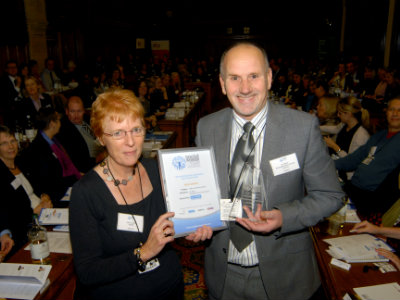
I grew up on a council estate with loving parents, who I later came to realise instilled an excellent value base in me and my seven siblings. The mining villages and towns of north Nottinghamshire were inclusive communities and it was this sense of equality that attracted me into the caring profession.
My greatest achievement in social work was to manage a team of highly motivated staff who really pushed the boundaries of complex care management via the use of direct payments. On the flip side, throughout my managerial career, I found staff supervision the most challenging part of my role. However, I strived to give all team members the support they needed to work with increasingly lengthy and complex caseloads while retaining their core social work values.
My 32-year career spanned several major national health and social crises, including the spread of BSE (mad cow disease). Fortunately the huge numbers of cases of nvCJD (the human form of BSE) that were predicted did not materialise, however I did case manage a young woman with a firm diagnosis. This included supporting an understandably angry family, but also working at a pace to deal with rapid deterioration not previously experienced by health and social care professionals. I managed this case for many months after the young woman’s death to ensure the family were able to negotiate the legal implications of the no fault compensation claim.
The latter two and a half years of my career were spent working as part of the self-directed support project team, which in itself achieved my ambition to have some influence over strategic planning and future practice. If I could have changed one thing, it would have been the relationship between social and health care providers. The inability of the NHS to develop a continuing health care process that serves disabled people in a fair and equitable way is a travesty, placing huge and inappropriate financial burden on stretched local authority budgets.
I have been fortunate enough to have a very understanding wife who fully understood (most of the time) that social work is not a nine-to-five job. I relaxed by being at home with her and our four children, and latterly our two grandchildren. My wife and I have also built three houses during the last 20 years. I found doing something totally separate from social work was highly therapeutic.
For anyone entering the profession and contemplating working with physically disabled people, be prepared for very challenging cases. Sometimes the complexities will seem overwhelming, but with support from colleagues, the sense of deep satisfaction that comes from accurate assessment and well thought through care packages, which have been designed jointly between service users and families, is immeasurable.
Ian Baker was team manager of the physical disability team at Nottinghamshire County until he retired last September. He won the outstanding lifetime achievement award at the Social Worker of the Year Awards 2011.
Entries are now open for the Social Worker of the Year Awards 2012
Related articles
Interview: Social work award winner Kelly Hicks


 Bournemouth, Christchurch and Poole
Bournemouth, Christchurch and Poole  Hampshire County Council
Hampshire County Council  Lincolnshire County Council
Lincolnshire County Council  Norfolk County Council
Norfolk County Council  Northamptonshire Children’s Trust
Northamptonshire Children’s Trust  South Gloucestershire Council
South Gloucestershire Council  Wiltshire Council
Wiltshire Council  Wokingham Borough Council
Wokingham Borough Council  Children and young people with SEND are ‘valued and prioritised’ in Wiltshire, find inspectors
Children and young people with SEND are ‘valued and prioritised’ in Wiltshire, find inspectors  How specialist refugee teams benefit young people and social workers
How specialist refugee teams benefit young people and social workers  Podcast: returning to social work after becoming a first-time parent
Podcast: returning to social work after becoming a first-time parent  Podcast: would you work for an inadequate-rated service?
Podcast: would you work for an inadequate-rated service?  Family help: one local authority’s experience of the model
Family help: one local authority’s experience of the model  Workforce Insights – showcasing a selection of the sector’s top recruiters
Workforce Insights – showcasing a selection of the sector’s top recruiters 

 Facebook
Facebook X
X LinkedIn
LinkedIn Instagram
Instagram
Comments are closed.